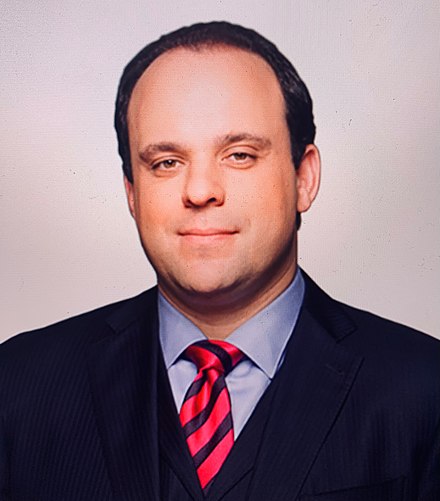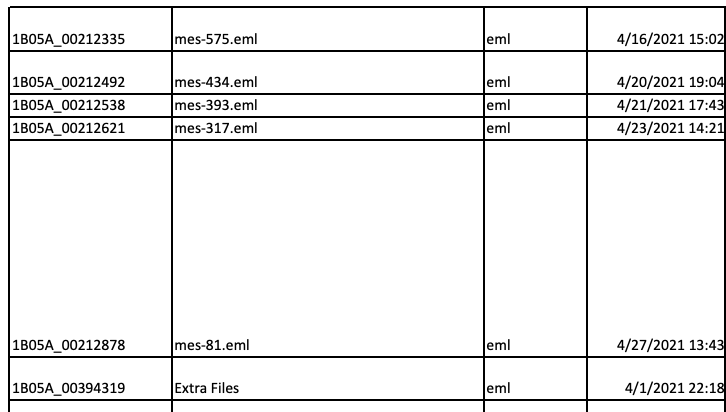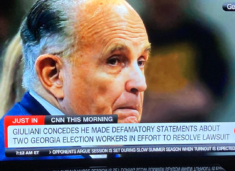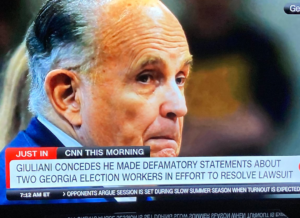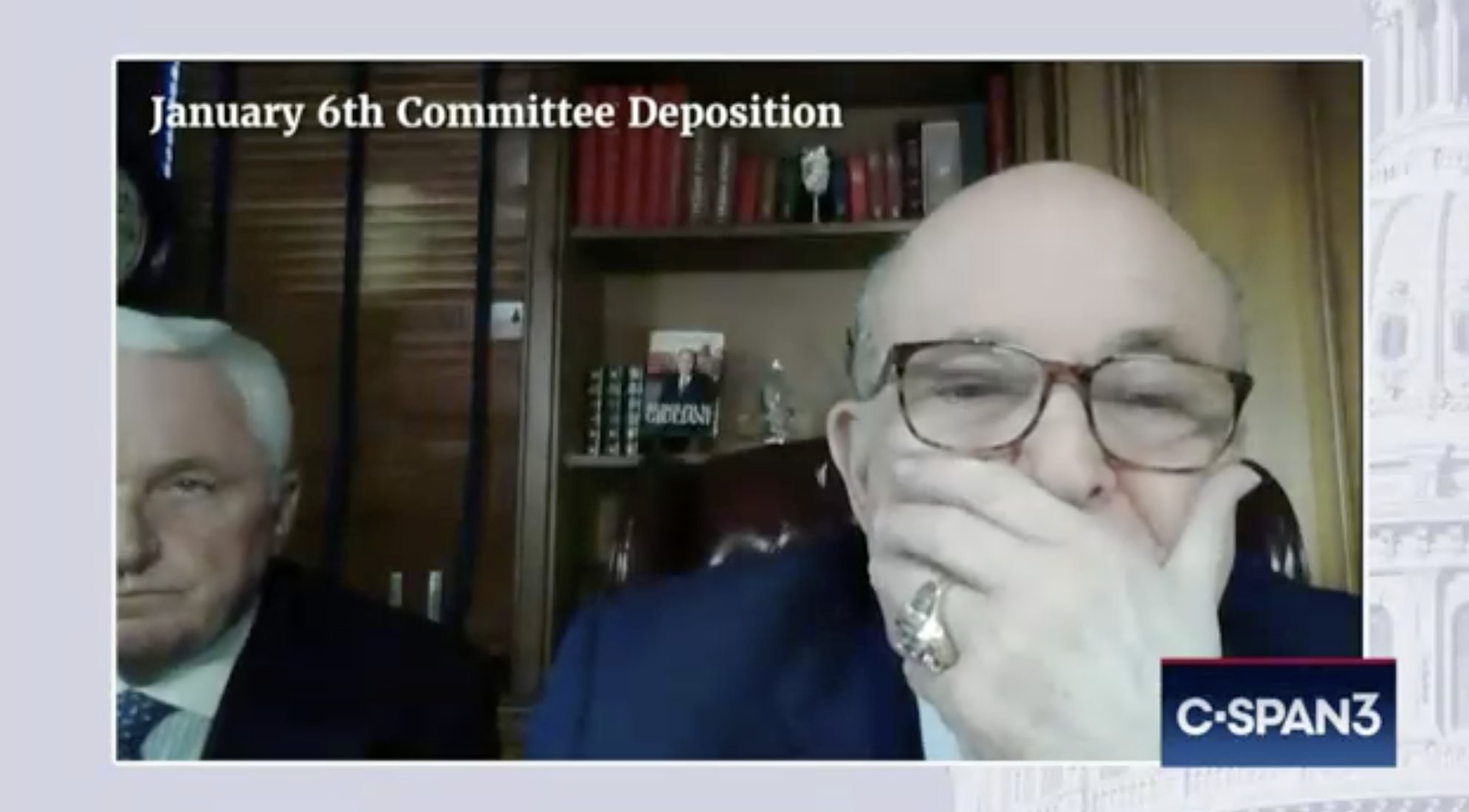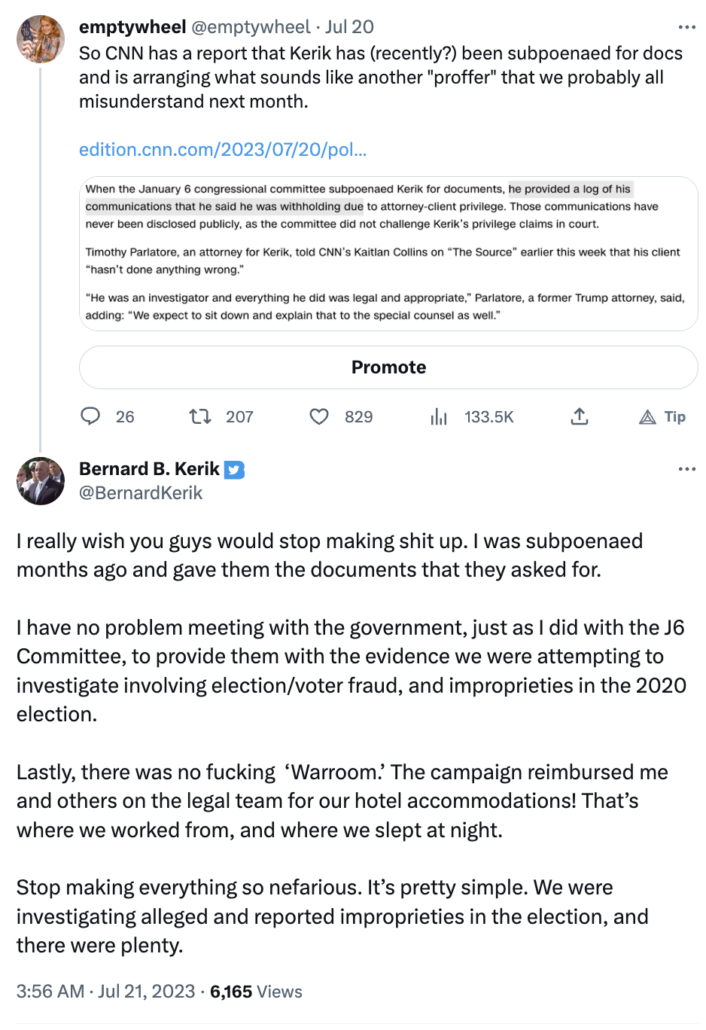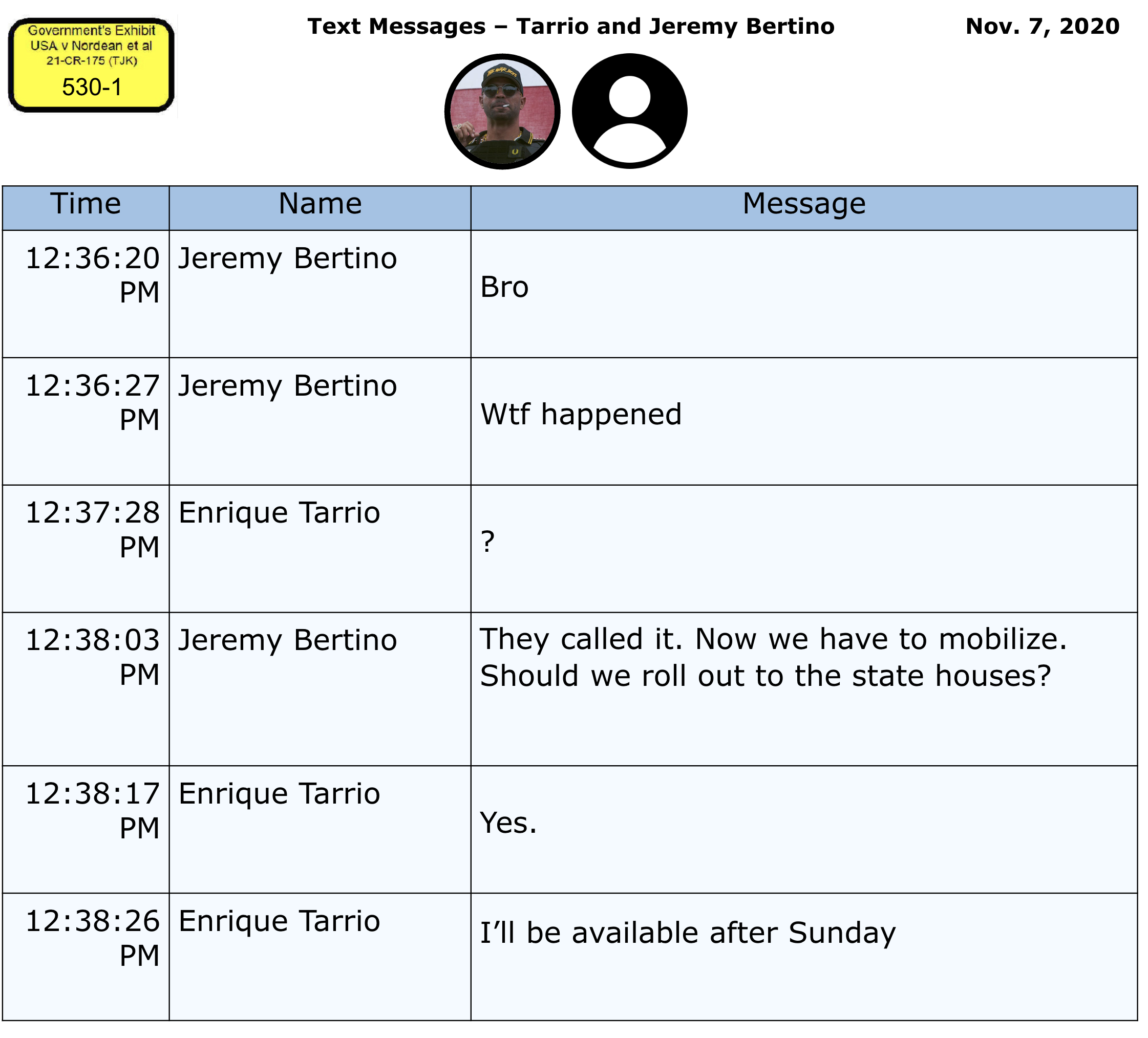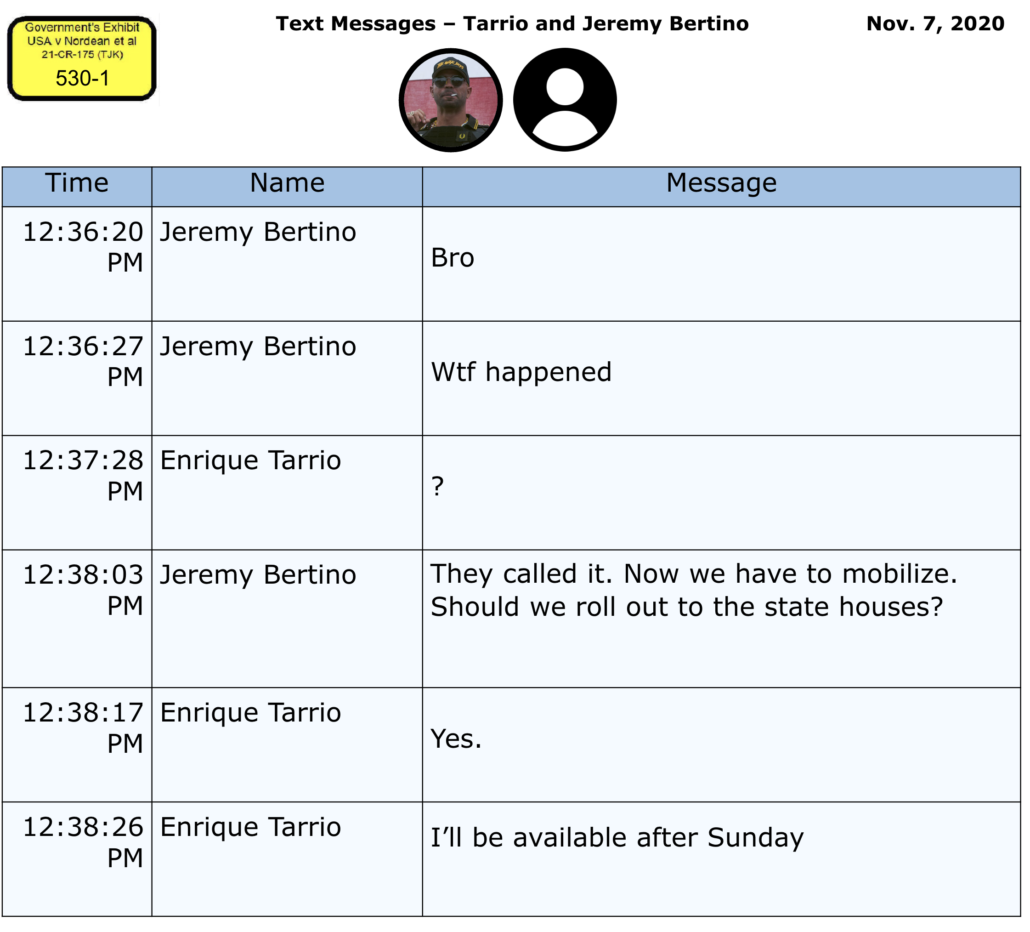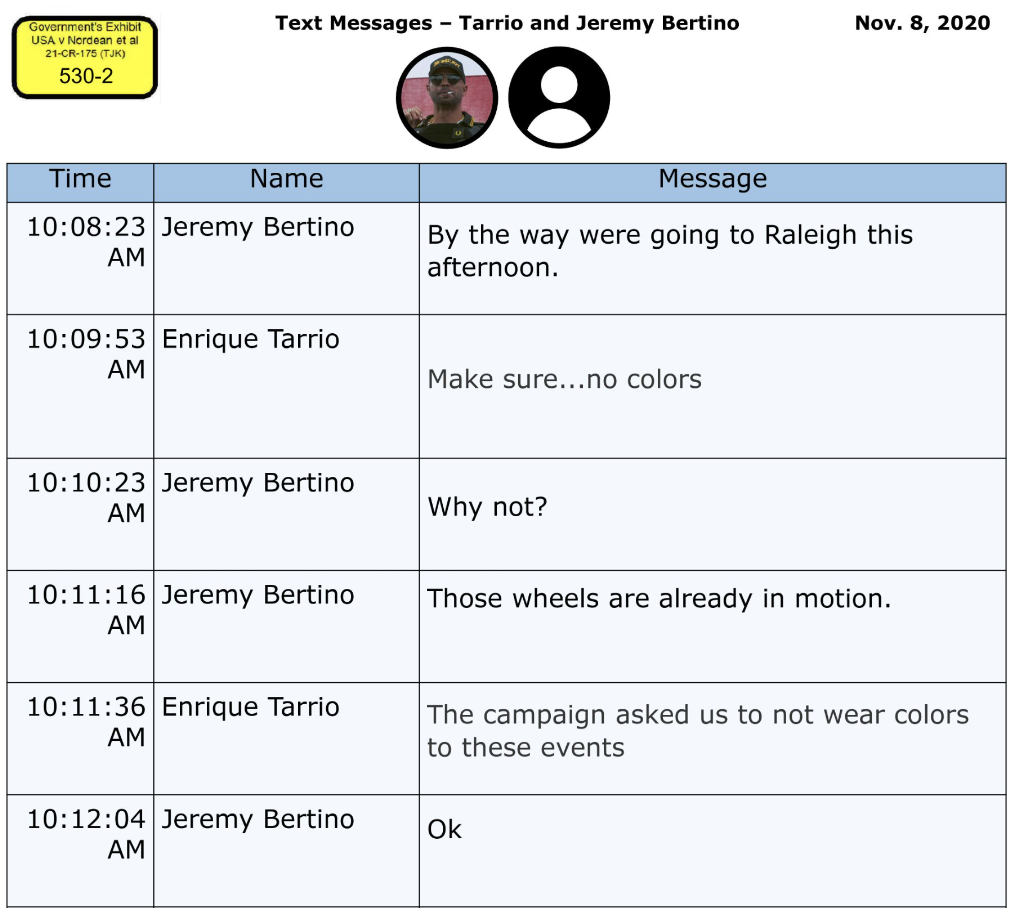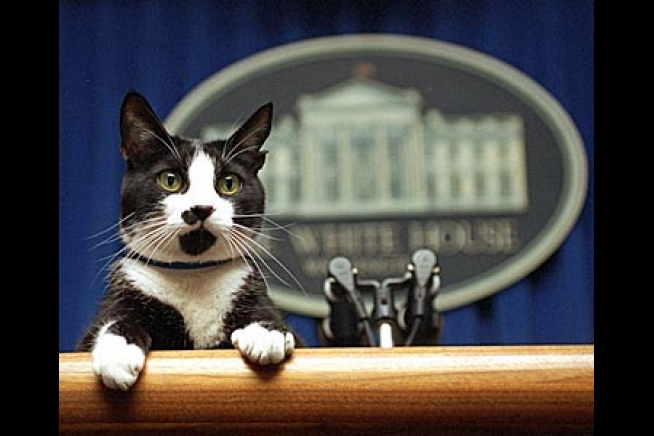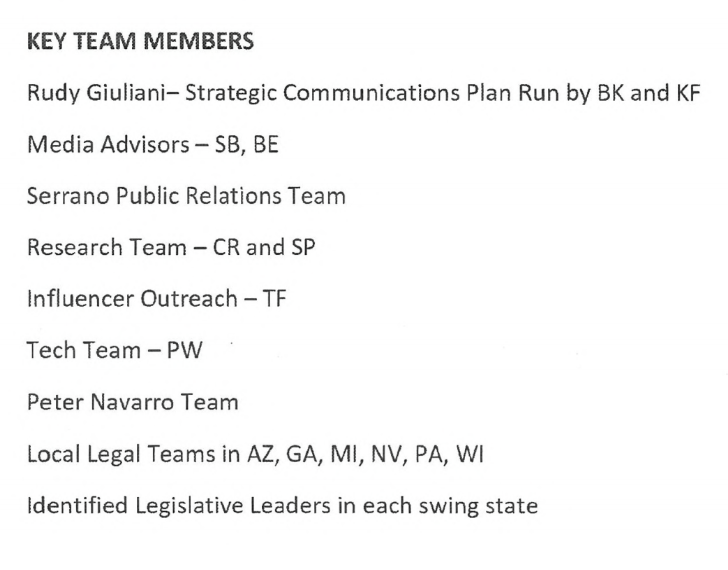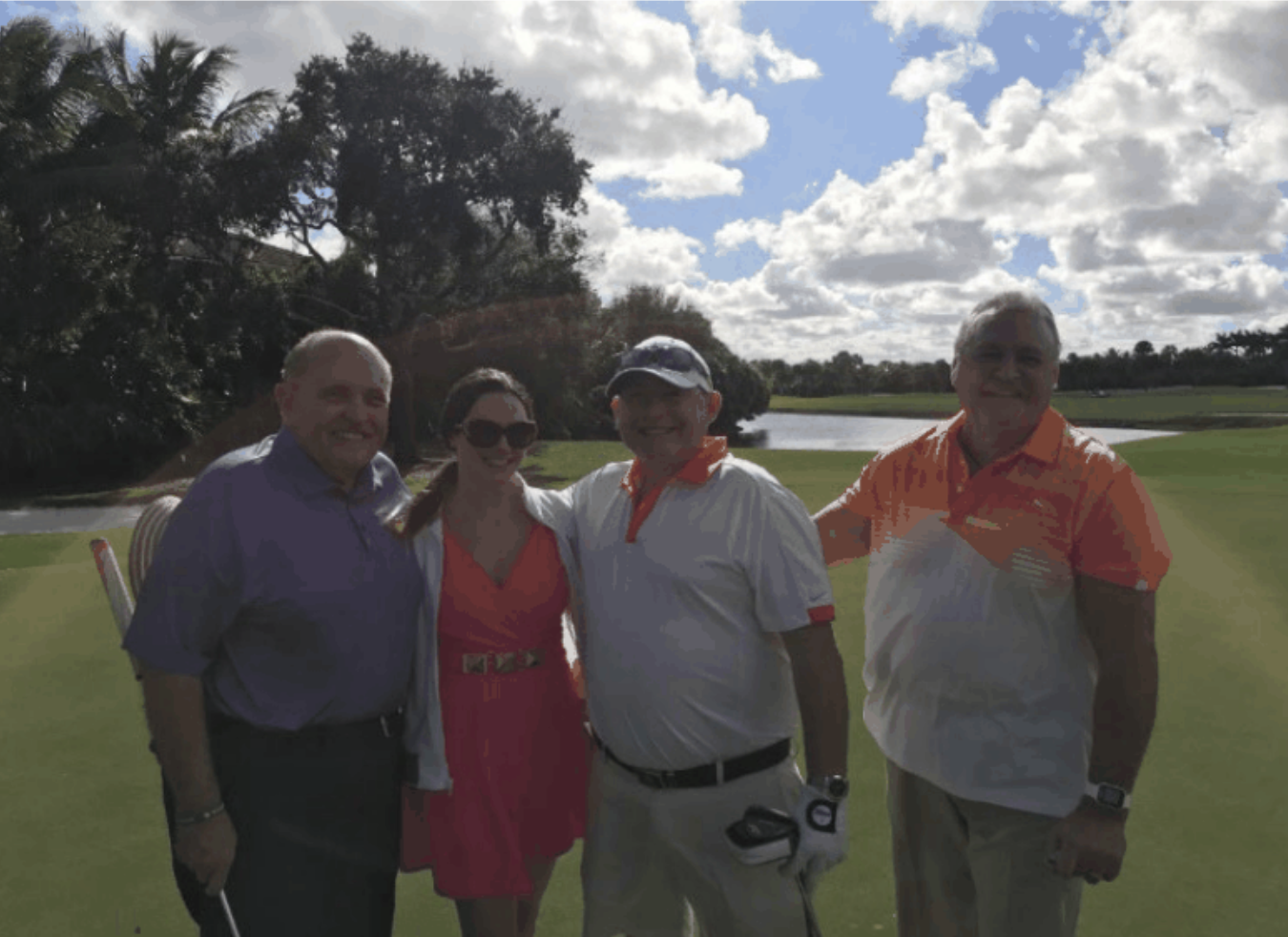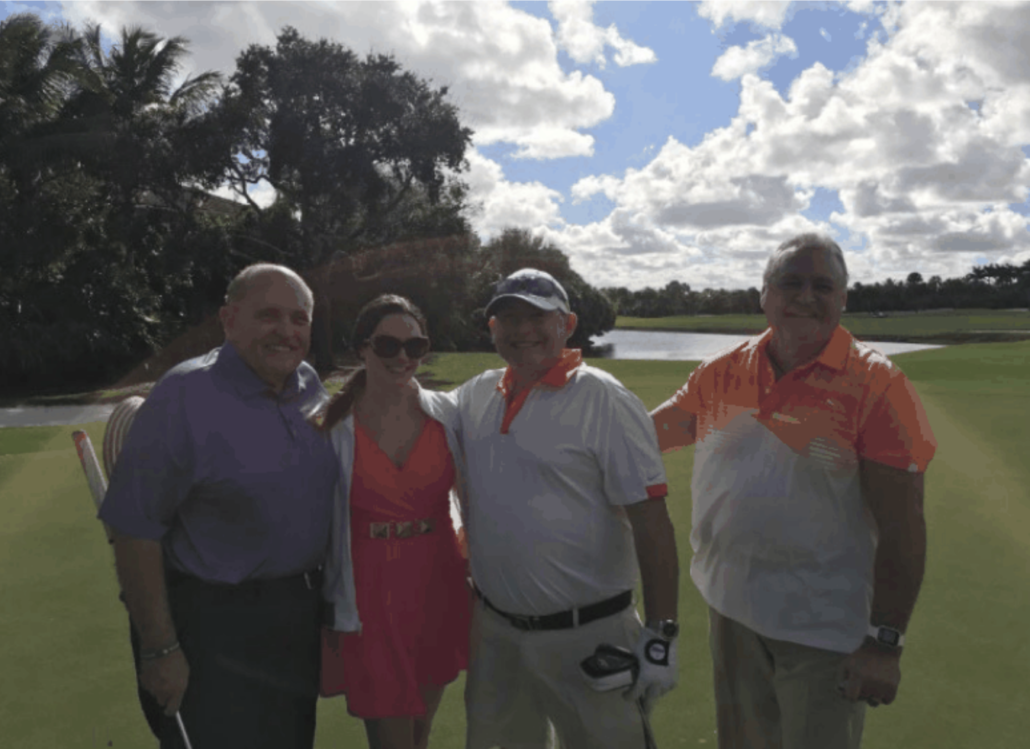Trump’s Means of Bullying and His Co-Conspirator Volunteer Lawyers
There were three developments in the dispute over the protective order in Trump’s January 6 indictment yesterday.
Trump’s team filed their response to Judge Tanya Chutkan’s order and the government’s motion for a protective order, including not just a redline of the government’s proposed protective order, but also a rant claiming that Dark Brandon made public comments about Trump’s indictment he did not.
The government’s reply used John Lauro’s five Sunday show appearances to demonstrate that Trump is explicitly demanding to try this case in the public sphere rather than the courtroom.
Then Judge Chutkan issued an order that they find time for a hearing on this this week.
MINUTE ORDER as to DONALD J. TRUMP: Upon consideration of the government’s 10 Motion for Protective Order and Defendant’s 14 Response, as well as the government’s 15 Reply, the court will schedule a hearing on the parties’ respective proposals. The court will waive the requirement of Defendant’s appearance. Accordingly, it is hereby ORDERED that no later than 3:00 PM on August 8, 2023, the parties shall meet and confer and file a joint notice of two dates and times on or before August 11, 2023 when both parties are available for a hearing. Signed by Judge Tanya S. Chutkan on 08/07/2023.
Both linked filings are worth reading, but I want to focus on two minor details in the government’s filing.
The method of Trump’s bullying madness
The government pitches their argument as one of regular order, about trying the case in the courtroom rather than the public. It is about John Lauro’s stated goals, not Donald John Trump’s.
The defendant’s proposed order would lead to the public dissemination of discovery material. Indeed, that is the defendant’s stated goal; the defendant seeks to use the discovery material to litigate this case in the media. But that is contrary to the purpose of criminal discovery, which is to afford defendants the ability to prepare for and mount a defense in court—not to wage a media campaign.
[snip]
Defense counsel’s stated goal—to publicly disseminate and discuss discovery materials in the public sphere—is contrary to the general principle against pretrial publicity and inconsistent with this District’s local rule regarding conduct of attorneys in criminal cases, and the Court should not enter a protective order that permits such harmful extra-judicial publicity. As an initial matter, the Court can and should exercise its discretion, with respect to the protective order, to prevent dissemination of discovery material that could prejudice the jury. Accord Gannett Co. v. DePasquale, 443 U.S. 368, 378 (1979) (“a trial judge has an affirmative constitutional duty to minimize the effects of prejudicial pretrial publicity.”); United States v. Brown, 218 F.3d 415, 423 n.8 (5th Cir. 2000) (“Other principal dangers [of pretrial publicity] include disseminating to the press inadmissible evidence, the exclusion of which at trial ‘is rendered meaningless when news media make it available to the public,’ as well as creating a ‘carnival atmosphere,’ which threatens the integrity of the proceeding.” (quoting Shepherd v. Maxwell, 384 U.S. 333 (1966)).
This District’s rules prohibit defense counsel from doing precisely what he has stated he intends to do with discovery if permitted: publicize, outside of court, details of this case, including the testimony of anticipated witnesses. Local Criminal Rule 57.7(b) provides that it is the duty of attorneys in criminal cases not to publicly disseminate “information or opinion” regarding, among other things, “[t]he existence or contents of any . . . statement given by the accused” or “[t]he identity, testimony, or credibility of prospective witnesses.” This is because such statements risk tainting the jury pool with inadmissible evidence or otherwise harming the integrity of these proceedings. See Gentile v. State Bar of Nevada, 501 U.S. 1030, 1074 (1991) (“Because lawyers have special access to information, through discovery and client communications, their extrajudicial statements pose a threat to the fairness of a pending proceeding since lawyers’ statements are likely to be received as especially authoritative.”). The Court should not grant a protective order that would allow defense counsel or the defendant to disseminate evidence such as snippets of witness interview recordings—no matter how short, misleading, or unlikely to be admissible at trial under the Federal Rules of Evidence—and claim that it supports some position the defendant later may make in pre-trial motions or at trial. Such conduct has the potential to unnecessarily inflame public opinion short of all relevant facts, intimidate witnesses, pollute the jury pool, and in general degrade the integrity of proceedings in this Court. See Bridges v. California, 314 U.S. 252, 271 (1941) (“Legal trials are not like elections, to be won through the use of the meeting-hall, the radio, and the newspaper.”). The goal of the defendant’s proposed protective order—prejudicial publicity—is antithetical to the interests of justice.
[snip]
The Government has proposed a standard, reasonable order that will streamline the flow of discovery to the defendant while preserving the integrity of these proceedings. The defendant has proposed an unreasonable order to facilitate his plan to litigate this case in the media, to the detriment of litigating this case in the courtroom. Normal order should prevail.
As many people have noted, however, as an aside to the description of Lauro’s press blitz over the weekend, the government included this reference to Trump’s attack on Mike Pence.
1 The defendant himself has made a number of additional social media posts related to this case since the Government filed its motion for a protective order. For example, the day before his counsel made comments about Mr. Pence, the defendant posted the following to social media: “WOW, it’s finally happened! Liddle’ Mike Pence, a man who was about to be ousted as Governor Indiana until I came along and made him V.P., has gone to the Dark Side. I never told a newly emboldened (not based on his 2% poll numbers!) Pence to put me above the Constitution, or that Mike was ‘too honest.’ He’s delusional, and now he wants to show he’s a tough guy. I once read a major magazine article on Mike. It said he was not a very good person. I was surprised, but the article was right. Sad!”
Nevertheless, the government doesn’t address whether this tweet violates Trump’s release condition, which would prohibit him from talking to Mike Pence about the case.
Given the inclusion of that tweet, though, I’m more interested in this note addressing one of Trump’s requested changes. It describes why Trump’s lawyers should have to inspect Trump’s own notes of discovery to make sure he’s not taking notes about specific witnesses.
In paragraph 10, the defendant seeks to prohibit his counsel from confirming that his notes do not contain personally identifying information subject to Federal Rule of Criminal Procedure 49.1. But this condition—which is included in the protective order on which the defense claims to model its proposal—is particularly important here because of the defendant and his co-conspirators’ practice, as described in the indictment, of publicly targeting individuals. See, e.g., ECF No. 1, Indictment, at ¶¶ 26, 32, 42, 44, 97.
DOJ justifies having Trump’s lawyers babysit his own note-taking because of “the defendant and his co-conspirators’ practice, as described in the indictment, of publicly targeting individuals.”
It then cites as examples the following paragraphs of the indictment:
- The death threats that followed Rudy Giuliani’s baseless accusations against Ruby Freeman and Shaye Moss.
- Trump’s accusation that Brad Raffensperger “has no clue” after he refused to find Trump 11,780 votes.
- The death threats that followed Trump’s public attack on Al Schmidt.
- Trump’s retweet of a tweet attacking PA GOP legislative leaders for stating that they could not throw out the popular vote in PA.
- In response to Mike Pence telling Trump he would not throw out the vote certification, Trump telling Pence he would have to publicly criticize him.
It’s the last one I find so interesting. DOJ does not cite the various tweets Trump sent on January 6 or the revisions addressed to Pence Trump made sure to include in his Ellipse speech — comments that led directly to death threats targeted against Pence. Rather, DOJ pointed to what must rely on Pence’s testimony, of Trump telling Pence he would send those tweets and make those public comments.
Thus far, DOJ has steered well clear of focusing on Trump’s potential violation of release conditions (perhaps wisely wanting to forestall Trump’s attempt to turn this into more victimhood). It has also steered clear, in the indictment, of claiming Trump incited death threats against everyone from Ruby Freeman to Mike Pence and thousands of people in between.
But in this citation, it has suggested that a method of this conspiracy was to trigger death threats against those unwilling to bow to Trump’s demands.
Trump’s non-attorney of record consigliere
Another specific objection — one of several objections to Trump’s attempts to expand the circle of people with whom he can share discovery — pertains to the definition of lawyers permitted to obtain discovery. In a wildly pregnant comment, DOJ notes that “several” co-conspirators are IDed as attorneys.
In paragraph 2, the defendant proposes including “other attorneys assisting counsel of record.” Without a clearly defined relationship of employment or privilege, this language is boundless. For example, several co-conspirators are identified as attorneys, whom the defense might interpret as “other attorneys assisting counsel of record.” The Court should not accept the edit.
In fact, four people are identified as attorneys in the indictment’s description of them: Rudy, John Eastman, Sidney Powell, and Kenneth Chesebro.
This post has led me to notice that the indictment doesn’t identify Jeffrey Clark as an attorney (perhaps because, while undoubtedly an attorney, he never had an attorney-client relationship with Trump during the conspiracy). Though he is obviously an attorney.
And then there is co-conspirator 6, described in the indictment as a political consultant and so someone who could be either Mike Roman (who does not have a JD) or Boris Epshteyn (who does). One reason it is not confirmed which of these two men it was is both were closely involved in the December recruitment of fake electors, the indictment’s primary focus on CC6’s activities. (The one other overt act was to help Rudy chase down contact information for Senators on January 6.)
As it happens, though, Epshteyn is not just someone who is known to have been closely involved in the fake elector conspiracy, but he is someone who in the stolen document case served as an “other attorney assisting counsel of record.” Crazier still, Epshteyn shares an attorney with Trump: Todd Blanche, who represents Trump in the Alvin Bragg case, the stolen documents case, and now the January 6 case. Epshteyn, who has never filed a notice of appearance for Trump, has followed him around to his various arraignments as if he is family.
If DOJ has a specific concern about Trump sharing discovery with Epshteyn — who has been centrally involved in Trump’s efforts to combat his legal jeopardy by attacking rule of law — this is the kind of objection they might raise.

